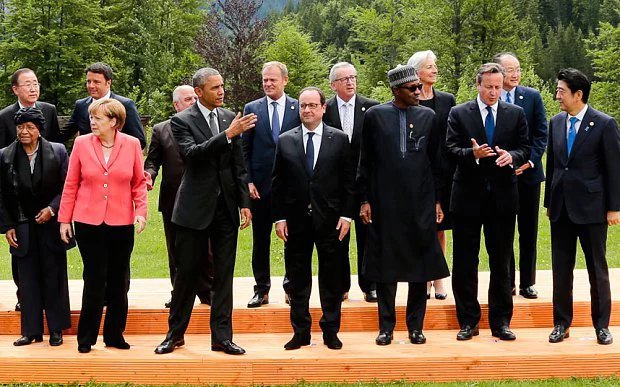If you are a cash strapped oil producer like Nigeria and struggling with short term liabilities to the tune of $20 billion, one way to raise money could be to tap the Eurobond market especially since demand is elevated and yields below double digits for most African issuers.
Dollar bonds in Nigeria, Africa’s biggest economy which is struggling amid Brent crude’s 38 percent slide in the last year, are faring better than countries outside the continent, according to data from Bloomberg.
Nigeria’s dollar bonds have lost 0.3 percent since April 15, versus 1.9 percent for Russia and 3.9 percent for Brazil. The yield on Nigeria’s $500 million Eurobonds due July 2023 closed at 6.135 percent on June 10, 2015, according to data from the Abuja based Debt Management Office (DMO).
The slump in Asia and the BRICs started as investors balked at record-low yields from Asia to Europe amid speculation the Federal Reserve is preparing to raise interest rates in another round of Taper Tantrum.
The biggest challenge for the incoming Buhari administration will be reconciling campaign promises that include the construction of 3,000km of superhighway including service trunks and building of up to 4,800km of modern railway lines with an essentially empty treasury.
From the FT :
“The fall in the price of crude has left state coffers depleted, fuel in short supply and the incoming government facing up to $20bn of short-term liabilities, including salary arrears, according to a draft action plan for the president’s first months in office.”
Nigeria which is Africa’s largest crude producer derives 90 percent of its export earnings and 70 percent of government revenue from oil.
The International Monetary Fund (IMF) predicts growth of 4.8 percent this year, down from 6.3 percent in 2014.
Nigeria’s total debt (Federal and States) was only equivalent to 14 percent of GDP in 2014, according to data from the Debt Management Office (DMO), making it easier to increase debt levels to boost spending if needed.
The country’s total external debt of $9.4 billion was equivalent to as percentage of GDP was equivalent to 2 percent of GDP as at March 2015, according to data from the DMO.
“African debt has enough good stories that would make it more resilient,” Kaan Nazli, who helps oversee $4.8 billion of emerging-market debt at Neuberger Berman Europe Ltd. in The Hague, told Bloomberg. “The yields are still attractive. Those will help cushion during this period in which monetary conditions globally will be tightening.”
Ivory Coast with an economy twelve times smaller than Nigeria’s and which defaulted on its debt during a brief 2011 war sold a $1 billion Eurobond in February at a yield of 6.625 percent which was four times oversubscribed.
Gabon sold a $500 million Eurobond due in June 2024 on Tuesday that was about six times oversubscribed and bought by more than 200 investors.
To keep that in perspective Gabon’s had a GDP of $11.5 billion in 2013 meaning the bonds raised were equivalent to 4.3 percent of its economy.
Nairametrics estimates that if the Buhari administration were to undertake to finance a fiscal stimulus programme equivalent to 4 percent of GDP it could raise about $20billion or N4 trillion from external sources at an interest rate mix less than 10 percent.
This money would be available to be invested in infrastructure or other capital expenditure like housing which the APC manifesto emphasizes.
Nigeria could raise two tranches of $5 billion 10 year Eurobonds at less than an 8 percent yield.
It could also supplement these with borrowings from DFIs like the African Development Bank, Asian Development Bank, World Bank, and bilateral agreements with the Chinese.
The ball is in the Presidents court.
Global market volatility will not remain subdued like it is for too long, especially if Janet Yellen decides it’s time pop any bubbles being formed from QE to infinity and zero interest rates.
PAT MELIK
